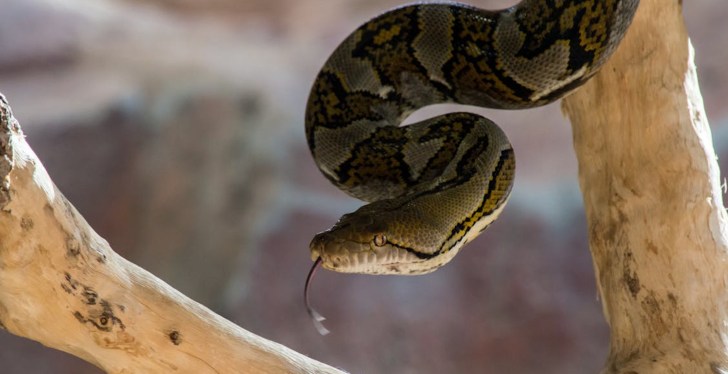Authorities in Florida have come up with a high-tech solution to combat an invasive snake species wreaking havoc across the Everglades.
The snakes in question are Burmese pythons, and the South Florida Water Management District reveals a new tool hunters use to combat them. Their efforts are part of the annual “Florida Python Challenge,” which started on July 11 and finished on July 20. The Water Management District showed off their robot bunny squad in a news release, which is solar-powered and remotely controlled.
The robot rabbit’s appearance is likely enough to fool a human at range, but a Burmese python needs more convincing. To that end, the rabbits have a heat signature and scent to lure the snakes to their location. The robots also have cameras and reportedly notify officials when they spot a snake. Once a Burmese python sighting is confirmed, authorities send a ‘python removal agent’ to the area.
Where Did The Invasive Snake Species Come From?
The South Florida Water Management District explains that officials first spotted Burmese pythons in the Everglades in the 70s. They allegedly showed up in Florida as a result of the pet trade. The pythons may have gotten a foothold in the wild through owners intentionally or accidentally releasing them into the wild.
The Burmese pythons thrived in the Everglades as they are at the top of the food chain, and many other animals in the area are fair game. The outlet points out that those food sources include the Key Largo wood rat, which is an endangered species. Other predators, like bobcats and panthers, also suffer as the snakes rob them of their food sources.
Per Fox 13 News, a lead invasive animal biologist, Mike Kirkland, explained that the rabbit idea was originally tested using live animals. Authorities cared for the live rabbits and kept them in protective cages, safe from the pythons. Kirkland reportedly said that the robotic rabbits are a more sustainable option. “Pythons pick up on heat signatures, movement, and likely scent. The robotic rabbits now check all three boxes,” he noted.
According to the Florida Fish and Wildlife Conservation Commission, the pythons are not protected except by an anti-cruelty law. They can also be killed year-round without a hunting license.
